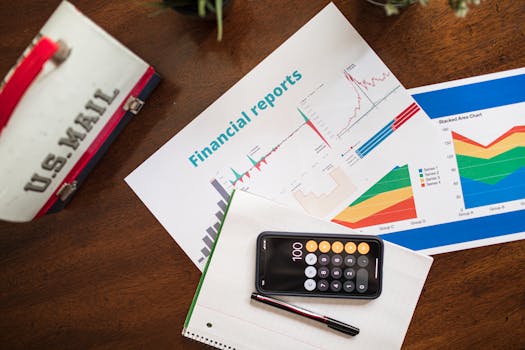
Are you looking for a reliable source of passive income to bolster your investment portfolio? The FTSE 100 index, home to some of the UK's most established companies, offers numerous opportunities. But picking the right stock for long-term dividend growth requires careful consideration. This article focuses on Unilever (ULVR), a consumer goods giant with a compelling case for passive income generation. We’ll explore why this FTSE 100 stalwart could be a strong addition to your portfolio for long-term, sustainable dividend payouts.
Understanding Passive Income and Dividend Investing
Passive income is income earned with minimal ongoing effort. Dividend investing, a cornerstone of passive income strategies, involves purchasing shares of companies that regularly distribute a portion of their profits to shareholders. This distribution, known as a dividend, provides a consistent stream of income, supplementing your primary earnings and potentially growing your investment over time. High-yield dividend stocks are particularly attractive for those seeking substantial passive income streams. However, it's crucial to balance yield with the company's financial health and long-term prospects.
Key Advantages of Dividend Investing
- Regular Income Stream: Dividends provide a predictable cash flow, acting as a cushion against market volatility.
- Capital Appreciation: While dividends are a primary benefit, stock prices can also appreciate over time, providing additional returns.
- Tax Advantages: Dividend income might be taxed at a lower rate than other income sources (consult a financial advisor for specific tax implications).
- Portfolio Diversification: Dividend stocks often contribute to a more well-rounded and diversified portfolio.
Unilever (ULVR): A Deep Dive into a FTSE 100 Dividend Powerhouse
Unilever (ULVR) is a multinational consumer goods company with a portfolio of iconic brands spanning food, beverages, cleaning agents, and personal care products. Think Dove, Knorr, Lipton, and Ben & Jerry's – these are just a few of the household names under the Unilever umbrella. This vast portfolio and global presence contribute to the company's stability and consistent profitability, making it an attractive option for dividend-focused investors.
Why Unilever Stands Out:
- Strong Brand Portfolio: Unilever's diverse portfolio of established brands provides significant pricing power and resilience against economic downturns. The demand for their products remains relatively stable, even during periods of economic uncertainty.
- Global Reach: Operating in numerous countries worldwide, Unilever benefits from geographic diversification, mitigating risk associated with any single market. This broad exposure increases revenue streams and stability.
- Consistent Dividend Growth: Unilever has a long history of paying consistent and growing dividends, showcasing a commitment to returning value to shareholders. This track record makes it an appealing prospect for long-term investors seeking passive income.
- Defensive Sector: The consumer staples sector, to which Unilever belongs, is generally considered defensive. This means that demand for its products tends to remain relatively stable, even during economic downturns.
Analyzing Unilever's Dividend History and Future Prospects
Unilever has a robust track record of dividend payouts. Analyzing its historical dividend growth helps predict future income streams. While past performance isn't a guarantee of future returns, a consistent increase in dividend payouts indicates a company's financial strength and commitment to shareholder returns. You can easily find this data via financial news sites and the company's investor relations page.
Factors Influencing Future Dividends:
- Profitability: Unilever's continued profitability is paramount for sustaining dividend growth. Analyzing its financial statements, including revenue, profit margins, and debt levels, provides insights into future dividend prospects.
- Growth Strategies: Unilever's investment in research and development, expansion into new markets, and acquisition of complementary brands will impact its future financial performance and dividend capacity.
- Economic Conditions: Global economic factors, such as inflation and consumer spending, influence Unilever's sales and profitability, indirectly affecting dividend payments.
- Share Buybacks: Company share buybacks can impact the dividend payout per share, potentially increasing the yield for existing shareholders.
Assessing Risk and Diversification
While Unilever offers strong potential for passive income, it's essential to consider the inherent risks. No investment is entirely risk-free. Factors like currency fluctuations, competition, and changes in consumer preferences can influence the company's performance. Diversification is crucial to mitigate risk. Don't put all your eggs in one basket; spread your investments across different asset classes and companies.
Diversification Strategies:
- Portfolio Diversification: Invest in a range of assets, including stocks, bonds, and potentially real estate, to reduce overall portfolio risk.
- Sector Diversification: Don't limit your investments solely to consumer staples. Explore other sectors to diversify your exposure.
- Geographic Diversification: Investing in companies operating in different regions can lessen the impact of regional economic downturns.
Conclusion: Unilever – A Potential Cornerstone for Your Passive Income Strategy
Unilever (ULVR) presents a compelling case as a FTSE 100 stock for long-term passive income generation. Its strong brand portfolio, global reach, and consistent dividend growth history make it an attractive option for investors seeking a reliable income stream. However, thorough research and diversification are crucial before making any investment decisions. Consult with a financial advisor to determine if Unilever aligns with your risk tolerance and long-term financial goals. Remember, this analysis provides information and not financial advice. Always conduct your own thorough due diligence before investing.



















